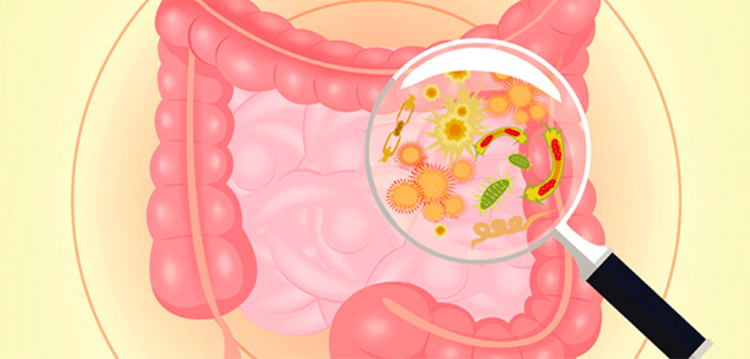
21 . 05 . 2020
Polycystic Ovary Syndrome - How to treat? - Part II
In the last article, we explored the several factors that contribute to the excess of male hormones and irregular menstrual cycles, which characterize the Polycystic Ovary Syndrome (PCOS). This article will focus on the available therapeutic options, both from a conventional and more natural approach.
As explained earlier, there are four main categories of PCOS, and each has different triggering factors, although there may be some interposition. It makes sense that the therapeutic approach is also directed at the underlying imbalance. However, from a conventional standpoint, there is no therapeutic individualization, and most PCOS cases are treated the same way.
What is the conventional treatment of PCOS?
Generally, PCOS treatment is directed at the symptoms resulting from excess androgens, and comprises the following categories of drugs:
- Oral contraceptives – these drugs are used to “regulate” the period. Oral contraceptives block communication between the pituitary and ovaries and promote monthly bleeding (if the woman stops taking it monthly), which does not correspond to an actual menstrual cycle, however. That is, the pill can restore monthly bleeding and prevent excessive proliferation of the endometrium (lining of the uterus), but it does not correct the underlying problem. It may even worsen it since it is associated with a decrease in insulin sensitivity (1). Some pills also have an anti-androgenic effect and help control acne and hirsutism, typical of PCOS.
- Progestins or micronized progesterone – in women with no periods, who do not take the pill, these drugs are used, cyclically, to induce uterine hemorrhage and prevent excessive development of the endometrium, which increases the risk of cancer in the future.
- Anti-androgens – drugs specifically designed to block male sex hormone receptors (spironolactone, for example) and thus lessen their effects, such as acne, hirsutism, and alopecia.
- Metformin – a drug used to treat diabetes due to its insulin-sensitizing effect. This is a way to decrease insulin resistance, which is one of the factors promoting PCOS.
What else can be done to treat PCOS?
The focus of treatment should be the reversal of the underlying imbalance, so that women can restore their regular ovulatory cycles and thus produce their own hormones (specifically progesterone) naturally, which has many positive effects. We will then analyze the therapeutic options for the different types of PCOS, always starting with diet and lifestyle.
1. Insulin resistant PCOS
The goal here is to increase insulin sensitivity, which allows the body to keep stable blood glucose levels. The most useful tools to achieve this state are:
- Diet low in sugar and refined carbohydrates – Carbohydrates shouldn’t be avoided completely but must come from unprocessed sources (e.g., potatoes, sweet potatoes, etc.). If the patient is overweight, then weight loss is a great indicator of improving insulin sensitivity.
- Diet low in sugar and refined carbohydrates – Carbohydrates shouldn’t be avoided completely but must come from unprocessed sources (e.g., potatoes, sweet potatoes, etc.). If the patient is overweight, then weight loss is a great indicator of improving insulin sensitivity.
- Decrease the diet’s inflammatory load – processed, fried foods, saturated fat and gluten should be avoided. A dairy-free period can be beneficial, too.
- Exercise – both strength training and aerobic exercise are beneficial, as they increase the muscle’s glucose uptake.

Fig. 1 – Exercise is an essential tool for reversing insulin resistance.
Some nutrients and botanical agents are also useful in promoting insulin sensitivity and restoring menstrual cycles, such as the following:
- Magnesium – a mineral that functions as a cofactor in numerous enzymatic reactions in the body (2).
- Alpha-lipoic acid – a substance present in food but also produced in our body, which has an important antioxidant action and is also involved in the production of cellular energy. It helps to improve insulin sensitivity and the healthy development of follicles in the ovary (3).
- Myo-Inositol – intracellular messenger that promotes insulin signaling and supports ovulation (4).
- Vitamin D – the popular hormone we get from sun exposure. Its supplementation decreases insulin resistance and androgen levels in women with PCOS (5).
- Berberine – phytonutrient present in many plants, which had an effect comparable to metformin in several studies (6).
Insulin resistance has many harmful consequences in the body, such as the increase in cardiovascular disease, so its treatment is very important.
2. Post contraceptive pill PCOS
This is a transient problem resulting from the interference of the pill in the communication between the pituitary and the ovaries, which tends to subside with time. It is essential to ensure an adequate supply of nutrients at this stage, through a balanced diet. If there is evidence of insulin resistance, sugar and refined carbohydrates should be limited, as we saw above.
The following supplements can help to accelerate the normalization of the ovulatory cycle:
- Zinc – the pill tends to cause deficiencies in this mineral. Zinc plays an important role in supporting ovulation and decreases androgen production in women with PCOS (7).
- Peony and licorice extract – combination used in Chinese herbal medicine, which helps balancing pituitary hormones and decreasing androgen production (8).
3. PCOS due to inflammation
In these patients, it is essential to discover the focus of inflammation and try to control it. The digestive tract is often a source of silent inflammation, and potential changes in the intestinal flora and food intolerances must be ruled out.
When it comes to supplements, the minerals zinc and magnesium can help reduce inflammation. Other nutrients to consider are:
- N-Acetylcysteine - has an anti-inflammatory effect and assists in the clearance of environmental toxins, through glutathione. In PCOS studies, it had a greater effect than placebo in restoring ovulation (9).
- Melatonin – a hormone produced by the pineal gland that plays a central role in the regulation of circadian rhythm. It also has an antioxidant and protective effect on ovarian follicles, helping to regulate ovulation in women with PCOS (10).

Fig.2 – Imbalances in the intestinal flora can cause systemic inflammation.
4. Adrenal PCOS
This category includes patients with an exaggerated response from the adrenal glands to pituitary stimulation through adrenocorticotropic hormone (ACTH), concerning androgen production, pituitary stimulus through adrenocorticotropic hormone (ACTH).
Simply put, stressful situations, in the broadest sense of the word and not just limited to psychological stress, promote the release of ACTH by the pituitary gland. Therefore, measures that can help to decrease the “alertness in the brain” and consequent ACTH stimulation, should be followed, with a special focus on lifestyle:
- perceived stress control strategies – sources of stress are often not preventable, but some practices help to control their effects. For example, meditation practices can help to lower ACTH levels (11). Anything that removes the brain from the hypervigilant state can be beneficial.
- prioritize sleep – lack of sleep affects physiology in many ways. The body interprets the lack of sleep as a potential danger signal and activates its “survival” methods. One of these methods is, precisely, the increase in ACTH (12).
- a balanced diet and exercise (without excess) – the other pillars of a healthy lifestyle also promote adequate ACTH levels However, when it comes to exercise, very intense practices should be avoided, as these can lead to an increased stress response.
- supplements that increase the inhibitory activity of the neurotransmitter GABA in the brain may also be beneficial if there is a significant component of stress and anxiety. This includes vitamin B6, magnesium, taurine and L-theanine, among others.
We covered several therapeutic options, from which it is wise to choose only a few. The priority should be to understand each patient’s imbalance, which results in excess male hormones, and to try to balance metabolic processes. In parallel, symptomatic treatments should be used to reduce the effects of excess androgens.
References:
- Adeniji AA, Essah PA, Nestler JE, Cheang KI. Metabolic Effects of a Commonly Used Combined Hormonal Oral Contraceptive in Women With and Without Polycystic Ovary Syndrome. J Womens Health (Larchmt). 2016;25(6):638–645.
- Morais JBS, Severo JS, de Alencar GRR, et al. Effect of magnesium supplementation on insulin resistance in humans: A systematic review. Nutrition. 2017;38:54-60.
- De Cicco S, Immediata V, Romualdi D, et al. Myoinositol combined with alpha-lipoic acid may improve the clinical and endocrine features of polycystic ovary syndrome through an insulin-independent action. Gynecol Endocrinol. 2017;33(9):698-701.
- Laganà AS, Garzon S, Casarin J, Franchi M, Ghezzi F. Inositol in Polycystic Ovary Syndrome: Restoring Fertility through a Pathophysiology-Based Approach. Trends Endocrinol Metab. 2018;29(11):768-780.
- Miao C-Y, Fang X-J, Chen Y, Zhang Q. Effect of vitamin D supplementation on polycystic ovary syndrome: A meta-analysis. Exp Ther Med. 2020;19(4):2641-2649.
- An Y, Sun Z, Zhang Y, Liu B, Guan Y, Lu M. The use of berberine for women with polycystic ovary syndrome undergoing IVF treatment. Clin Endocrinol (Oxf). 2014;80(3):425-431. doi:10.1111/cen.12294
- Jamilian, M., Foroozanfard, F., Bahmani, F. et al. Effects of Zinc Supplementation on Endocrine Outcomes in Women with Polycystic Ovary Syndrome: a Randomized, Double-Blind, Placebo-Controlled Trial. Biol Trace Elem Res 170, 271–278 (2016).
- Arentz S, Smith CA, Abbott J, Fahey P, Cheema BS, Bensoussan A. Combined Lifestyle and Herbal Medicine in Overweight Women with Polycystic Ovary Syndrome (PCOS): A Randomized Controlled Trial. Phytother Res. 2017;31(9):1330–1340.
- Thakker D, Raval A, Patel I, Walia R. N-acetylcysteine for polycystic ovary syndrome: a systematic review and meta-analysis of randomized controlled clinical trials. Obstet Gynecol Int. 2015;2015:817849.
- Tagliaferri V, Romualdi D, Scarinci E, et al. Melatonin Treatment May Be Able to Restore Menstrual Cyclicity in Women With PCOS: A Pilot Study. Reprod Sci. 2018;25(2):269-275.
- Sanada K, Montero-Marin J, Barceló-Soler A, et al. Effects of Mindfulness-Based Interventions on Biomarkers and Low-Grade Inflammation in Patients with Psychiatric Disorders: A Meta-Analytic Review. Int J Mol Sci. 2020;21(7):2484.
- Guyon A, Morselli LL, Balbo ML, et al. Effects of Insufficient Sleep on Pituitary-Adrenocortical Response to CRH Stimulation in Healthy Men. Sleep. 2017;40(6)
- Briden, L. The Period Repair Manual 2nd Edition. CreateSpace Independent Publishing Platform, 2017.